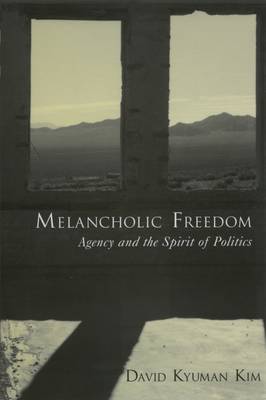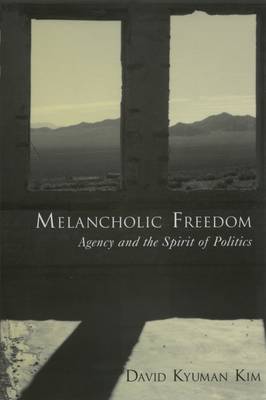
- Retrait gratuit dans votre magasin Club
- 7.000.000 titres dans notre catalogue
- Payer en toute sécurité
- Toujours un magasin près de chez vous
- Retrait gratuit dans votre magasin Club
- 7.000.0000 titres dans notre catalogue
- Payer en toute sécurité
- Toujours un magasin près de chez vous
Description
Why does agency -- the capacity to make choices and to act in the world -- matter to us? Why is it meaningful that our intentions have effects in the world, that they reflect our sense of identity, that they embody what we value? What kinds of motivations are available for political agency and judgment in an age that lacks the enthusiasm associated with the great emancipatory movements for civil rights and gender equality? What are the conditions for the possibility of being an effective agent when the meaning of democracy has become less transparent? David Kyuman Kim addresses these crucial questions by uncovering the political, moral, philosophical, and religious dimensions of human agency. Kim treats agency as a form of religious experience that reflects implicit and explicit notions of the good. Of particular concern are the moral, political, and religious motivations that underpin an understanding of agency as meaningful action. Through a critical engagement with the work of theorists such as Judith Butler, Charles Taylor, and Stanley Cavell, Kim argues that late modern and postmodern agency is found most effectively at work in what he calls "projects of regenerating agency" or critical and strategic responses to loss. Agency as melancholic freedom begins and endures, Kim maintains, through the moral and psychic losses associated with a broad range of experiences, including the moral identities shaped by secularized modernity and the multifold forms of alienation experienced by those who suffer the indignities of racial, gender, class, and sexuality discrimination and oppression. Kim calls for renewing the sense of urgency in our political and moral engagements by seeing agency as a vocation, where the aspiration for self-transformation and the human need for hope are fundamental concerns.
Spécifications
Parties prenantes
- Auteur(s) :
- Editeur:
Contenu
- Nombre de pages :
- 208
- Langue:
- Anglais
- Collection :
Caractéristiques
- EAN:
- 9780195372465
- Date de parution :
- 06-08-08
- Format:
- Livre broché
- Format numérique:
- Trade paperback (VS)
- Dimensions :
- 156 mm x 234 mm
- Poids :
- 322 g

Les avis
Nous publions uniquement les avis qui respectent les conditions requises. Consultez nos conditions pour les avis.






